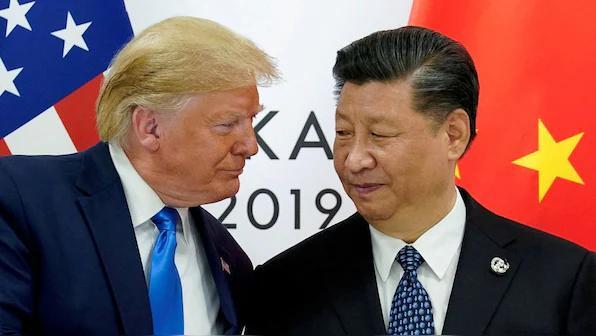
China Refuses to Join Denuclearisation Talks with US & Russia
In a move that has sent shockwaves through the international community, China has announced that it will not participate in trilateral denuclearisation talks with the United States and Russia. This decision comes after US President Donald Trump called for Beijing to join the negotiations, citing the country’s growing nuclear capabilities.
According to a statement released by the Chinese Foreign Ministry, Spokesperson Guo Jiakun said that the expectation of China participating in such talks was “neither reasonable nor realistic”. Guo pointed out that the nuclear capabilities of China and the US are vastly different, making it impractical for Beijing to join the talks.
This development has raised concerns about the future of global efforts to reduce nuclear proliferation and the potential for further tensions between the world’s two largest economies. The US and Russia have been engaged in denuclearisation talks for several years, with the aim of reducing the number of nuclear weapons held by both countries.
In recent months, the situation has become increasingly complicated, with the US and Russia accusing each other of violating the Intermediate-Range Nuclear Forces Treaty (INF). The INF Treaty, signed in 1987, banned the development and deployment of ground-launched intermediate-range missiles.
The decision by China to decline the invitation to join the talks is not surprising, given the country’s growing nuclear capabilities. In recent years, China has significantly increased its nuclear arsenal, with some estimates suggesting that the country now has over 300 nuclear warheads.
China’s nuclear program has been a source of concern for the US and other countries, with many arguing that Beijing’s growing military capabilities pose a significant threat to regional and global stability. The US has been vocal about its concerns, with some officials suggesting that China’s nuclear ambitions are driven by a desire to challenge US dominance in the Asia-Pacific region.
Despite China’s decision to decline the invitation to join the talks, the US and Russia have expressed a willingness to engage in further dialogue. In a statement, US Secretary of State Mike Pompeo said that the US was “prepared to engage in a serious and sustained diplomatic effort” to address the nuclear threat posed by China.
However, it remains to be seen whether China will reconsider its decision to decline the invitation to join the talks. The country has made it clear that it will not be pressured into participating in negotiations that it does not believe are in its best interests.
In the meantime, the situation remains tense, with the US and Russia continuing to engage in a game of diplomatic brinksmanship. The US has imposed sanctions on Russia in response to its alleged violations of the INF Treaty, while Russia has threatened to withdraw from the treaty altogether.
As the situation continues to unfold, it is clear that the stakes are high. The failure to reduce nuclear proliferation could have devastating consequences for global security, with the potential for further tensions and conflicts between the world’s major powers.
In conclusion, China’s decision to decline the invitation to join trilateral denuclearisation talks with the US and Russia is a significant development that highlights the complexities of global diplomacy. While the US and Russia continue to engage in talks, it remains to be seen whether China will reconsider its decision and join the negotiations.
Source:



